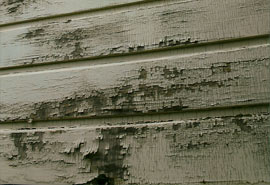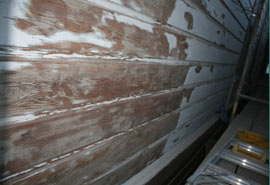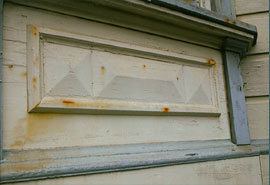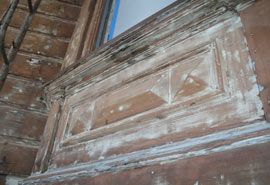Sanding and Stripping
During stripping, sanding and scraping we remove existing paint layers and prepare a building surface for new paint. The time we spend on surface preparation depends on a client’s budget and the quality they desire. In this phase of our process, time is quite literally money. The more time we spend on surface preparation, the higher the quality of the job and the higher the overall cost. We talk at length with clients to find the right balance between the quality they want and the amount of surface preparation they can afford.
In addition to a client’s aesthetic desires, we also factor in the following information before making a recommendation for sanding and stripping.
Current paint job’s condition: How much is it peeling or bubbling? How old is it? What is the quality of the previous job?
Orientation to the sun: Surfaces with southern exposures are heavily affected by sunlight and weather.
Owner plans: Does the client plan to live in the house for many years to come? Is the client planning on selling? If so, when?

Peeling and falling paint on home siding.

The same siding during sanding and stripping.

Molding before stripping and sanding.

The same molding chemically stripped down to the redwood surface. Stripped moldings retain sharp definition after painting, where as multiple paint layers can fill in edges and blur the shape of a molding.
